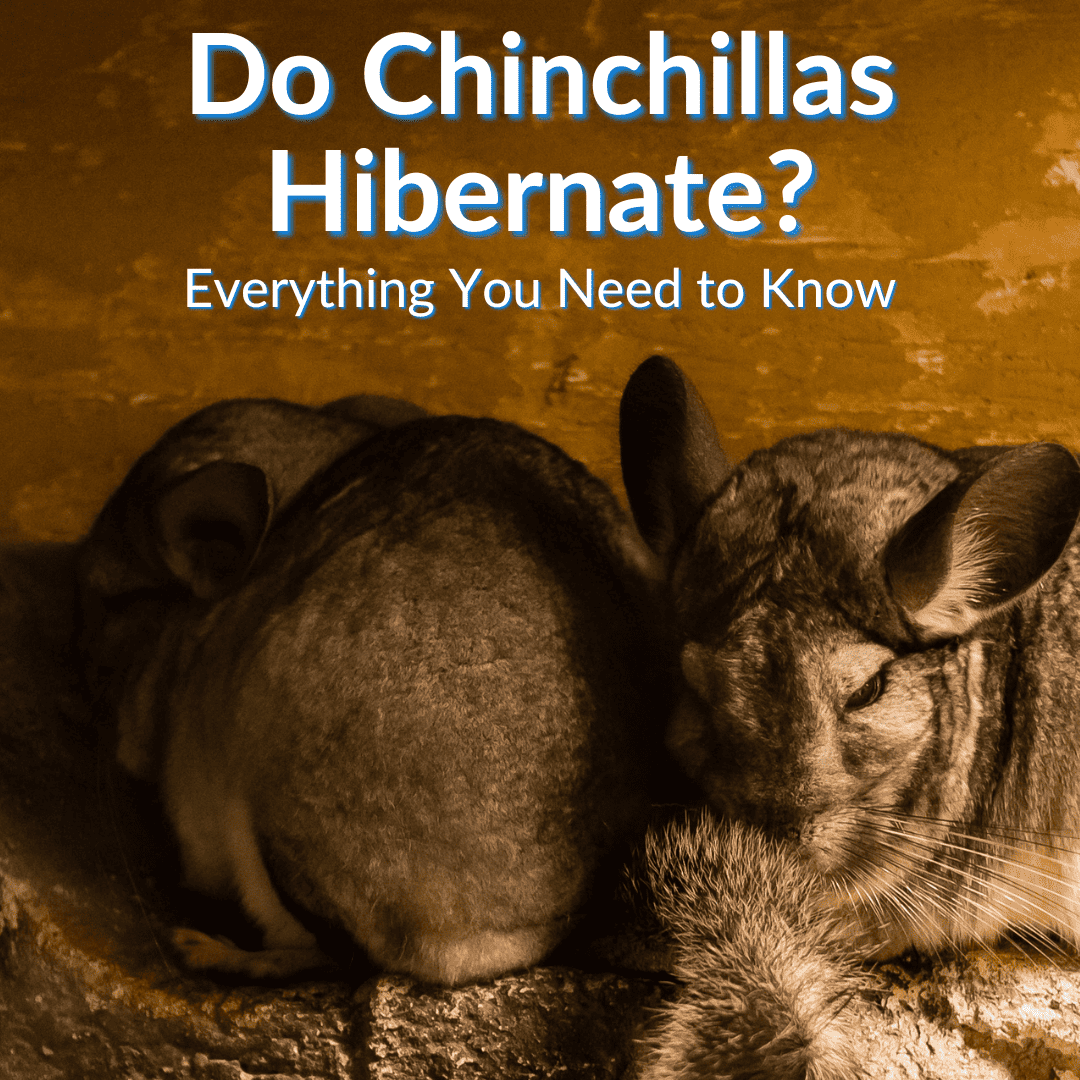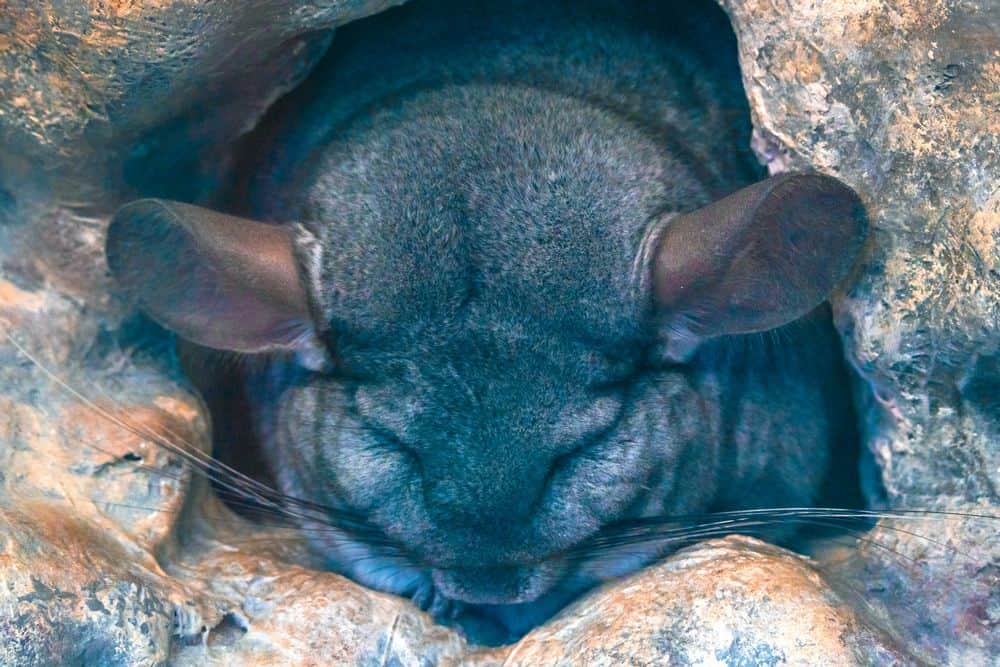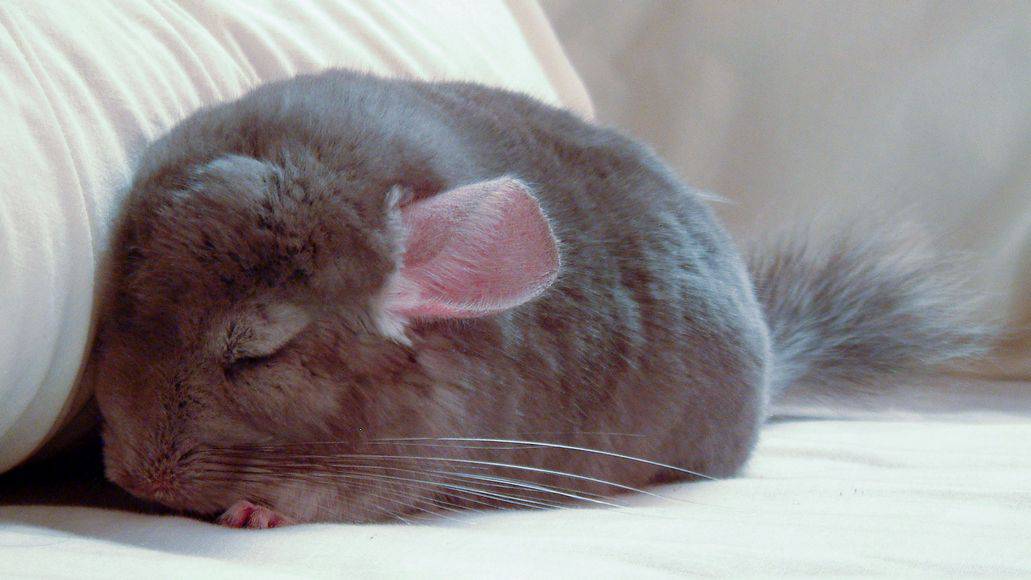
It is the only way to survive the cold winter weather.
Tropical animals do not have to worry about this.
But chinchillas are far from tropical animals.
They are native to the Andes mountains of South America.
The local climate is cold. In fact, it is cold most of the year.
Do chinchillas hibernate then, even though it would mean sleeping for most of the year?
Keep reading to learn whether chinchilla hibernate and what that means for you as a chinchilla owner. Do you need to make any special accommodations for your furry friend?
Contents
Do Chinchillas Hibernate?
No, chinchillas do not hibernate. It is possible that a chinchilla enters a state of torpor, which is a temporary hibernation. But this is not a good thing.
We will cover torpor below and explain why it is not something you want. First, let’s take a closer look at chinchilla hibernation in the wild and what you should do for your pet chinchilla during the colder months.
Chinchilla Hibernation In The Wild

Chinchillas are native to the Andes Mountains in Chile, a region where temperatures can be freezing for up to eight months of the year. Because of this, chinchillas have naturally adapted to cold environments and can tolerate lower temperatures than other small mammals.
However, unlike many other animals, chinchillas will not go into hibernation, even when temperatures are freezing. In the wild, chinchillas have multiple strategies to stay warm, including burrowing in snow or rocks or sleeping in groups.
Looking After Your Chinchilla In The Colder Months
If your home gets too cold during winter, it’s important to provide your chinchilla with an environment that’s warm, comfortable, and safe. Ensure that the cage is in a secure place, away from drafts, and that there’s plenty of bedding material to help keep your pet warm.
If you live in an area that gets particularly cold during certain seasons, it’s important to ensure that your chinchilla has places it can go to keep warm. This can be a heated hiding spot, a covered sleeping area, or even a soft fleece-lined hammock or sleeping bag.
You should also make sure the room temperature is a minimum of 60 degrees Fahrenheit. Any lower than this, and your chinchilla may experience some discomfort.
It’s also important to feed your chinchilla the right kind of food for the winter months. Chinchillas require a high-fiber diet with a lot of hay. Not only will this help keep the chinchilla warm and provide it with sufficient nutrients, but your pet will also be able to use the hay to burrow and create a cozy nest.
You should also provide chinchillas with water bottles that don’t freeze. Cold-water can cause your chinchilla to become dehydrated, which is dangerous for its health.

If you notice any unusual behavior in your chinchilla during winter, don’t hesitate to consult your vet. Chinchillas that are unwell may appear lethargic, have watery eyes or nose, or refuse food and water.
They may also have diarrhea or their droppings can appear smaller or different in color. By monitoring your chinchilla closely during winter, you’ll be able to ensure it gets the care it needs to stay healthy and comfortable during the colder months.
Torpor: Temporary Hibernation
Chinchillas can get stressed if there are sudden changes in their environment, such as fluctuating temperatures. If the temperature drops suddenly, chinchillas might go into torpor, which is a state of temporary hibernation.
During torpor, a chinchilla’s heart rate slows down, and its metabolism decreases to save energy. The respiratory system also slows down to conserve heat. However, torpor only lasts for a few hours, and the chinchilla wakes up when its temperature rises again.
Chinchillas are not built for hibernation and forcing them into hibernation can be fatal for them. If their metabolism slows down too much or for an extended period, their body will not be able to digest food or eliminate waste, which can result in health problems or even death.

If you find that your chinchilla is sluggish, sleeping more than usual, or has difficulty waking up, it is crucial to check the temperature in its environment and make sure it is suitable for your furry friend.
Paying attention to tiny details and keeping track of your chinchilla’s wellbeing can help ensure that it leads a happy and healthy life.
Chinchilla Hibernation: Final Thoughts
Now you know that if your chinchilla seems to be hibernating, there is something seriously wrong. You need to get it to a vet as soon as you can.
Chinchillas do not hibernate naturally, since they have evolved to be able to handle the cold temperatures in their native environment. However, they cannot handle temperatures that are too cold and their bodies start shutting down. Make sure you always maintain the ideal temperature for your pet chinchilla.
Patricia Leighton. says
My chinchilla come out of this cage and it’s been around the house ever since and now it said loads of babies and I can’t catch any of them so what do I do